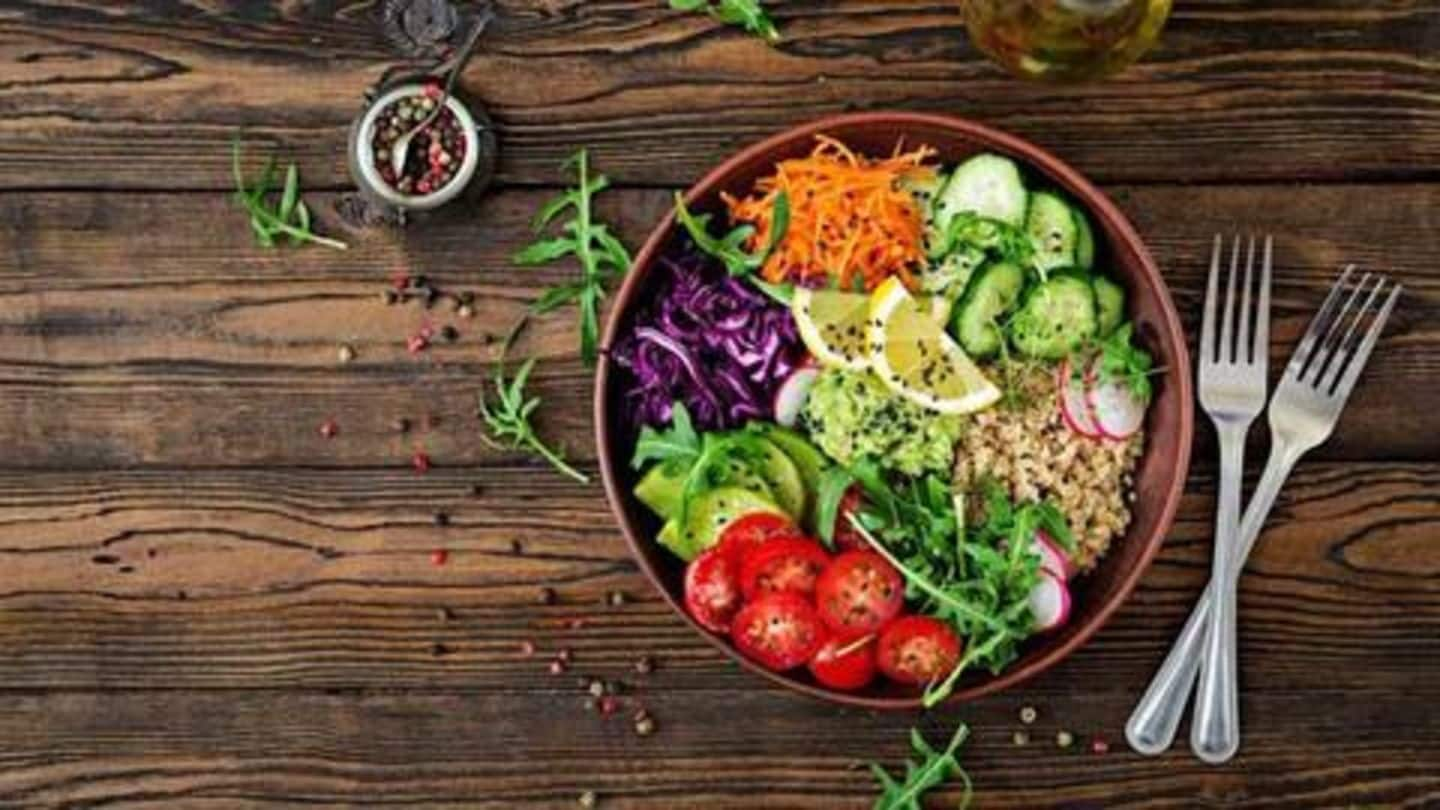
#HealthBytes: Five must-have food items for vegetarians
What's the story
Vegetarians often suffer from deficiency of certain nutrients, like protein, iron, zinc, omega-3 fatty acids, and specific vitamins such as Vitamin D and B-12, as they are mainly obtained from meat sources.
However, if you choose to be a vegetarian, you can still have a balanced and nutritious diet.
Here are five must-have healthy foods for vegetarians.
#1
Soy foods
Soy is one of the most wholesome food groups out there.
All soy-based food items are great sources of protein, so much so that their protein content is high enough to compete with their non-vegetarian counterparts.
Furthermore, they are rich in essential nutrients like calcium, iron, magnesium, potassium, dietary fiber, important vitamins, and healthy fats.
So, get more of soybeans, tofu, and soy milk.
#2
Whole grains
Whole grains are a great pick for vegetarians, as some of them are fortified with Vitamin B-12 (which is quite rare in vegetarian food).
Apart from that, they are also rich in iron, calcium, Vitamin B, and zinc.
Also, the insoluble fiber present in them is known to reduce risk of cholesterol, digestive problems, and even colon cancer.
#3
Nuts
Nuts, nut-butters, and other seeds are great protein-rich options for non-meat eaters.
With just a handful of nuts (25-30 grams), you get 5-7 grams of protein, depending on the type of the nut or seed variety.
Further, they are also rich in fiber, healthy fats, iron, calcium, magnesium, and phosphorus.
But, don't munch on too many if you are trying to lose weight.
#4
Leafy green veggies
Unlike other veggies, dark leafy greens (read spinach, broccoli, kale, collards) supply great amounts of iron. In addition, they are also rich in antioxidants, folic acid and Vitamin A, which are all great for your health.
Among other benefits, these veggies are known to improve digestive health, maintain good eyesight, boost skin health, and even aid in weight loss.
#5
Lentils and pulses
Another way to get proper nutrition and stay healthy for vegetarians is by including more lentils, pulses, and beans in their diet.
According to Harvard School of Public Health, one cup of cooked lentils contains nearly 18 grams of protein and 15 grams of fiber, with virtually no saturated fats or sodium.